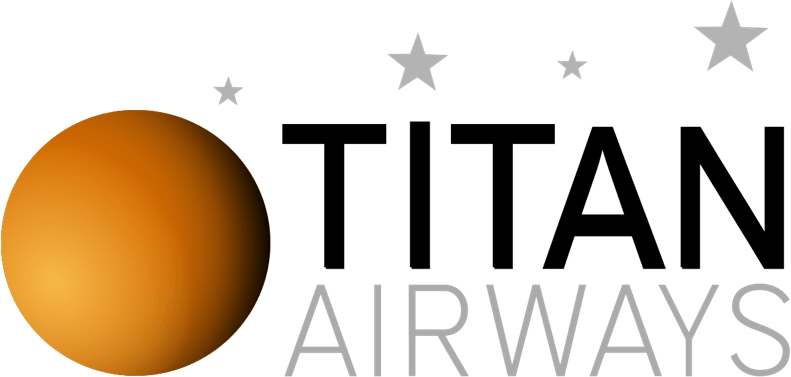FOR THE FINANCIAL YEAR ENDED 2023
We have prepared this statement to reflect activities undertaken in the financial year ended 31st March 2023 in accordance with the UK’s Modern Slavery Act.
This statement sets out Titan Airways’ actions to understand all potential modern slavery risks related to our business and to put in place steps that are aimed at ensuring there is no slavery or human trafficking in our own business or in our supply chains.
As part of the aviation industry sector, we recognise that we have a responsibility to take a robust approach to slavery and human trafficking. We are absolutely committed to acting ethically and with integrity in all our business dealings in order to prevent slavery and human trafficking in our corporate activities, and to ensuring, wherever possible, that our supply chains are free from slavery and human trafficking.
Organisational structure and supply chains
This statement covers the activities of Titan Airways Ltd:
The company was founded in 1988, employs around 400 people and is based at London Stansted Airport. It specialises in short-notice ACMI and wet-lease operations, as well as ad hoc passenger and cargo charter services to other airlines, tour operators, corporations, governments, and the sports and entertainment sectors. Having undertaken a review of its flight operations and supply chains, it has identified that these are key risk areas for modern slavery and human trafficking.
Countries of operation and supply
Although the company is not a scheduled carrier, we currently operate worldwide for our customers. This has included places known to be at risk of modern slavery and human trafficking, such as India, China, Pakistan, some African nations, Eastern Europe and Russia.
During the past 12 months, we have taken the following steps to address the identified risks.
Supply chain adherence to our values
We have a zero-tolerance approach to slavery and human trafficking and expect our suppliers and contractors to uphold the same values. We will not conduct business knowingly with anyone engaged in slavery and human trafficking practices or knowingly permit them to be carried out in any part of its business.
We are committed to complying with all applicable laws and regulations as well as conducting our supply chain activities in a fair, transparent and professional manner at all times.
Our employee uniform is currently sourced from three different companies. Two are in the UK and – most recently – one is in Denmark. Some use labour from the Indian sub-continent and Eastern Europe. Our most recent supplier bases its code of conduct policy on being aligned with the UN Guiding Principles on Business and Human Rights (the UNGPs).
Recruitment
Our standard recruitment checks of colleagues employed directly by us offer a significant level of protection. We are audited by the CAA on our recruitment and vetting processes, which ensures we are compliant to a high standard.
Training
Due to the nature of some of the flights and the destinations to which we operate for our customers, all our cabin crew members have undertaken ‘Indicators of Human Trafficking’ training on their initial and annual recurrent courses. This helps them to identify what to do if they suspect that human trafficking is taking place, how to identify the signs, what steps should be taken in handling the situation, and how to escalate potential slavery or human trafficking issues to the relevant parties.
Awareness Raising
As well as training employees, we have taken part in a collaborative raising awareness programme at Stansted Airport, which gives all our staff access to a campaign that explains:
- The basic principles of the modern slavery act 2015
- How employers can identify and prevent slavery and human trafficking
- What employees can do to flag up potential slavery or human trafficking issues
- What external help is available, for e.g., through the modern slavery helpline.
Confidential reporting
Titan has a confidential safety reporting system on which all colleagues are trained and encouraged to raise any concerns of safety or security.
Relevant supporting policies
We operate the following policies that describe our approach to the identification of modern slavery risks and steps to be taken to prevent slavery and human trafficking in our operations.
- Whistleblowing policy – we encourage our workers, customers and other business partners to report any concerns related to the direct activities, or the supply chains of, the organisation. Our whistleblowing procedure is designed to make it easy for workers to make disclosures, without fear of retaliation. Employees, customers or others who have concerns can use our confidential reporting system.
- Bribery Act policy – we are committed to the highest standards of ethical conduct and integrity in our business activities in the UK and overseas. The policy outlines our position on preventing and prohibiting bribery and corruption in accordance with the Bribery Act 2010.
- Employee code of conduct – our code makes clear to employees the actions and behaviour expected of them when representing the organisation. We strive to maintain the highest standards of employee conduct and ethical behaviour when operating abroad and managing our supply chain.
Board/Member approval
This statement has been approved by the company’s Board of Directors and signed on their behalf by:

William Tangney
Chief Operating Officer
Titan Airways LTD
Date: 5th October 2023

